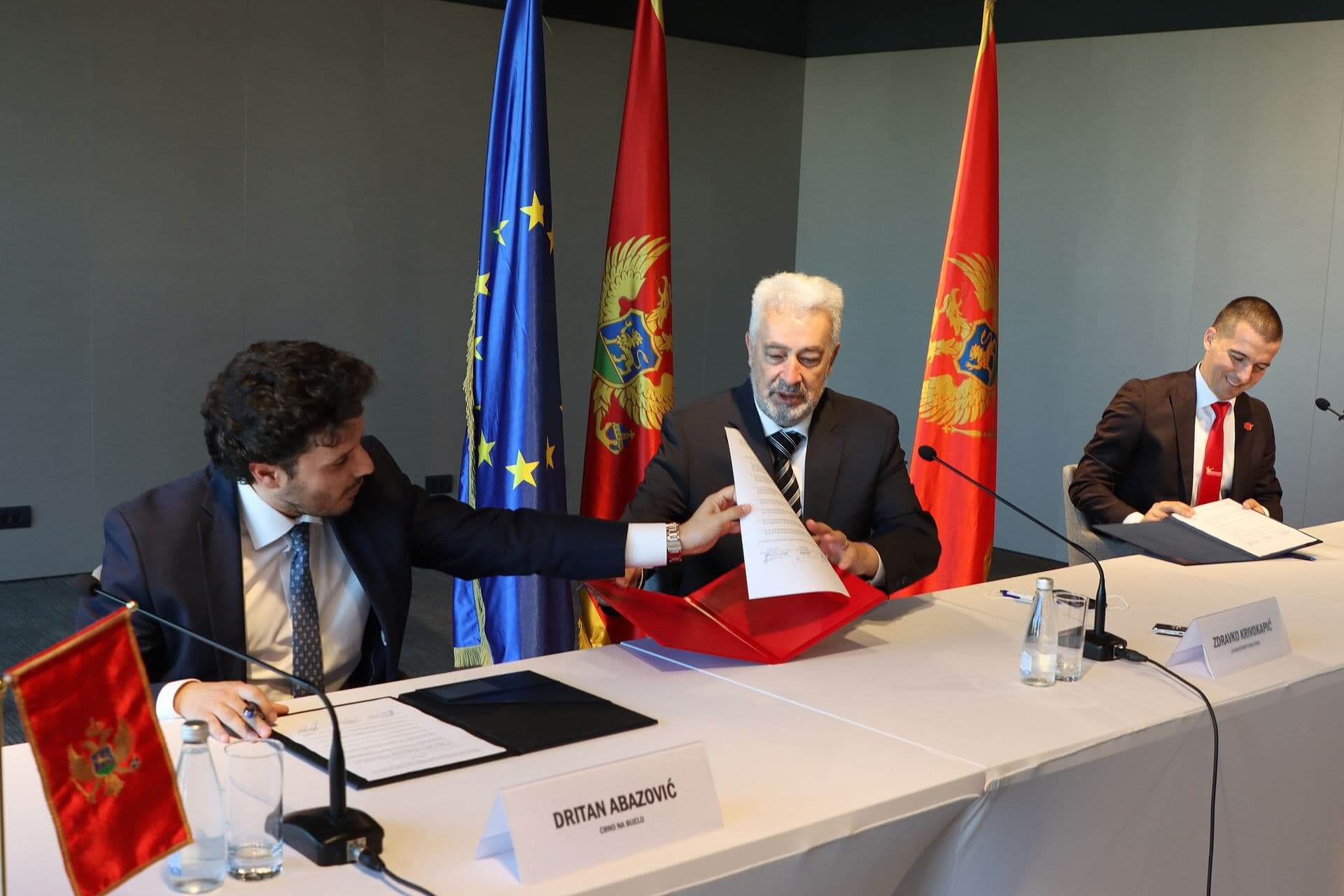The winning bloc in Montenegro cannot get rid of the bad luck that has been following it for two months, since the elections have passed. The departure of Metropolitan Amfilohije is just one of the last unfortunate events for the coalition, having in mind how important he was for its gathering, leadership, and later for its transformation into a government and state apparatus. But that could not be influenced.
They were convinced, and they were convincing others, that their coming to power would mark a break with the previous policy of the ruling DPS. They were unanimous in that during the election night, and for a few days after that, as they celebrated their result. However, the agreement on the main affairs of the future government, signed on September 9 by the leaders of the coalition Krivokapić, Bečić and Abazović, has shown that there will be no great discontinuity in Montenegro, let alone political turnaround. With a few minor corrections, the same paper could have been signed by Milo Đukanović or anyone from the DPS, because it agrees with the continuation of important tasks until then – work within NATO, EU membership, unchanged attitude towards Kosovo and the state symbols… After ten days of discontinuity, this period of continuity (with the policy of the DPS) lasted a short time, because during the same day the political parties were quite restrained, and some leaders even distanced themselves from the signed.
Although, the period of deviation from the policy of Đukanović and the DPS has begun again, the fact that the three leaders signed at the beginning of September remained as a kind of promise. Important international factors insist on that, first of all those in the European Union, those in whose language the agreement of the three leaders was originally written, and then translated into their mother tongue. Most of the unfortunate events for the coalition that is trying to form a new Montenegrin government, come from the confusion that European mediators bring to the otherwise complicated political scene. They want, on the one hand, to accept discontinuity as the original policy of the tripartite alliance, and on the other hand to impose on them the obligation to preserve the main directions of the current state policy of Montenegro. It is very difficult and at a great price.
Western support goes to those within the coalition who are ready to implement this, almost impossible, mixing of – oil and water, continuity and discontinuity. Support goes to Prime Minister-designate Krivokapić, as the leader of the bloc that presented itself to the head of state as the majority. It, on the one hand, embodies the policy of turnaround, promoted in the campaign and during the processions, and, again, it is ready to make compromises on important issues (NATO, Kosovo, EU, foreign policy, flag, anthem…). URA movement is acceptable to the West, because it is a member of the bloc for turnaround, but it is also for the continuation of the current policy in its main aspects. The problem with Western support arises if its favorites – Krivokapić and URA, for example, become a burden to the rest of the coalition. And that’s what’s happening right now.
The question is why Krivokapić, for example, is more acceptable to the West than the Democratic Front, because there is no easy and democratic answer to that. DF has broad legitimacy, it has voters, votes. All this, but only seemingly, has the mandator Krivokapić, but only while he is in “harmony” with the DF. If not, as is the case now, it comes down to an exponent of one very narrow and problematic (democratically) base, and those are the Metropolitanate of Montenegro and the Littoral and Nikšić businessman Miodrag Daka Davidović. The question is why the URA with four deputies is more acceptable to the West than the DF, which has 27 mandates, so it is being met in connection with the concept of an expert government. There is also a fair question – by which calculation and interest did the West “accept” the former radicals, nationalists and right-wingers Aleksandar Vučić and Tomislav Nikolić in Serbia almost a decade ago, and now does not accept similar ones in Montenegro – Andrija Mandić and Milan Knežević, for example. The lack of ideas and double standards of European mediators have largely contributed to today’s “neither in heaven nor on earth” political situation in Montenegro. If an expert government is on the horizon, then it is also a better option than uncertainty and procrastination. It will be the valve through which the impulse from the already forgotten election night on August 30 will pass, and thus at least cool the heated atmosphere a little. But nothing more than that. This government with only one MP more, composed of experts, and not politicians with legitimacy, was simply sentenced to a short life, and Montenegro with it to a very near early elections. In these elections, it will look for a clearer picture of the political mood in the country. Without processions and without the participation of the church. Or with them, but not hidden, as before, but visible as active participants in the elections. Under the full name of the Metropolitanate. Who knows, maybe the preparations for the early elections have already begun, because some leaders of the pro-Serbian bloc are more focused on the election of the new Metropolitan of Cetinje, than on the formation of the Government in Podgorica. The priorities are clear to them.
